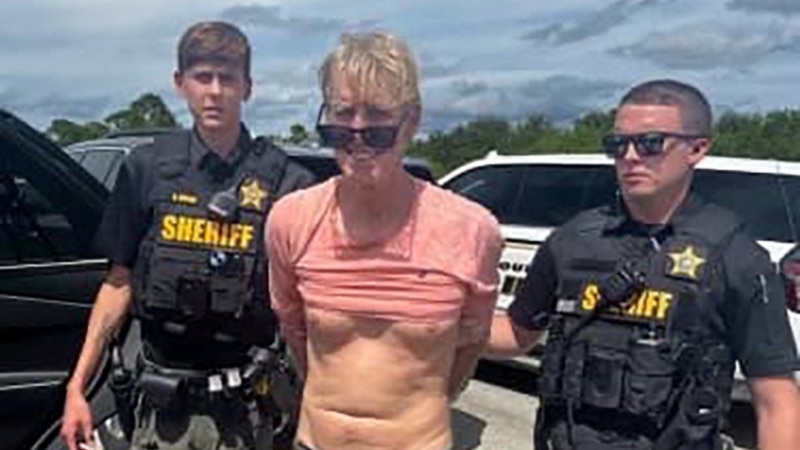
www.theamericanconservative.com
Modern Wars Are Wars of Attrition
Foreign Affairs
Modern Wars Are Wars of Attrition
Quick conclusions are the exception, not the rule.
Credit: image via Shutterstock
“Battles,” Carl Von Clausewitz said, “decide everything.” Yet the famed Prussian military theorist is wrong. Great battles and brilliant leaders can shape the course of events. But often it is attrition that is decisive in modern warfare. As Stalin observed in the wake of the Second World War, “Hitler’s generals, raised on the dogma of Clausewitz and Moltke,” lost because they “could not understand that wars are won in the factories.”
Too often the history of warfare is reduced to names and dates. Popular thought emphasizes military engagements, from Waterloo to Verdun and beyond, and it often underscores famous generals and admirals, from Napoleon to Robert E. Lee. Battles can be turning points, and leadership does matter. But as the historian Cathal Nolan convincingly argued in his 2019 book The Allure of Battle: A History of How Wars Have Been Won and Lost, they are seldom decisive. Indeed, for all their brilliance, famous commanders like Napoleon and Lee both ultimately lost.
Austerlitz was a triumph for Napoleon, and the Seven Days Battles rightly contributed to Lee’s legend. But in the end, battlefield brilliance wasn’t enough to overcome greater forces, be it via coalition or otherwise, marshaled against both men. “Exhaustion of morale and material rather than finality through battles marks the endgame of many wars,” Nolan observes. This has long been the case, he notes.
“Many who won hugely lopsided battles went on to lose the wars of which they were apart: Hannibal won at Cannae; Napoleon at Ulm; Hitler’s panzer armies took 650,000 prisoners outside of Kiev in 1941, yet all three went down to defeat.” But “in each case, strategic losses came after protracted attritional wars against enemies who refused to accept those earlier tactical outcomes as decisive in the greater conflict.”
Quick wars and conclusive victories, such as Israel’s 1967 Six-Day War, are the exception. Indeed, even in that instance, while Israel was able to defeat the numerically superior Arab armies in less than a week, it took two additional conflicts, the War of Attrition and the 1973 Yom Kippur War, before the foremost leader of the Arab world, Egypt, set down its arms.
There are, of course, other exceptions. But often attrition is the decisive factor. In fact, as Nolan ably points out “more often war results in something clouded, neither triumph nor defeat.” When surveying the overarching history of warfare since the Napoleonic Age, protracted and inconclusive conflicts are the norm, not the exception. Brief wars like the Spanish-American War are unusual, and even that conflict eventually descended into a long-running and bloody insurgency in the Philippines.
Real “victory,” Nolan writes, “must usher in political permanence.” Otherwise, hostilities are likely to continue—it is often just a matter of when they will break out again. The Hundred Years War, the wars of Louis XIV and Louis XV, the wars of the French Revolution and Napoleon, and “the modern thirty years war more often discretely recorded as World War I and World War II,” are cases in point.
Nonetheless, people are drawn to the idea of decisive battles. This is easily explainable; both people and places are key to forming narratives. But it contributes to the idea, popular among policymakers, the press, and the public, that a quick victory is potentially just around the corner. All that is needed is the right general, the right weapon, or a single, conclusive engagement. To be sure, generals do make a difference and certain battles are turning points in campaigns. But focusing on engagements and personalities and failing to appreciate the attritional nature of modern warfare can lead to overly optimistic assessments.
Indeed, it leads to a belief, not unheard of in the annals of history, that war will be brief. As one former Pentagon official once told me: “The boys will always be home by Christmas.” The War Hawks of 1812 predicted a quick and easy campaign against the British, only to watch the White House burn. Both the North and the South thought that the American Civil War would be a quick affair. Leading Union generals, such as George McClellan, kept pushing for a “magic bullet,” including an ambitious amphibious invasion and the capture of Richmond. But what was needed, as Abraham Lincoln eventually realized, was a commander who grasped the “awful arithmetic”; a general who used the North’s numerical advantages in men and material. It was going to be a brutal slog, and the war wasn’t won until the Union had commanders like Grant and Sherman who grasped this fact.
Nor has this phenomenon been limited to the United States. The Franco–Prussian War, which lasted from July 1870 to January 1871, contributed to the delusion that modern war could be a quick affair. Ditto for the Russo–Japanese War of 1905. Both led to a generation of Japanese and German strategists who emphasized decisive campaigns over wars of attrition. This bred overconfidence, and with it, tragedy.
Technology was a contributing factor. As Nolan observes, “the way World War I ended suggested to all the planners that trench warfare was over, that mobility was restored to battle…. Maybe by restoring maneuver to battle, genius and decision could also be restored?” Consequently, German planners “put faith in the revolutionary capabilities of tanks and aircraft.” Early successes led to more overconfidence. Combined with the ideologies of Nazism and Japanese militarism—ideologies that emphasized racial and ethnic supremacism—it was a toxic brew.
But, as the historian Victor Davis Hanson pointed out in his book The Second World Wars: “The once ascendent Axis powers were completely ill-prepared—politically, militarily, and economically—to win the global war that they blundered into during 1941.” Yet only the Allies grasped a central fact: “In any existential war, only the side that has the ability to destroy the homeland of the other wins.”
Indeed, the Axis decision to wage war was nothing short of insane. Germany’s decision to invade the Soviet Union and Japan’s decision to attack Pearl Harbor were epic mistakes. The United States had ten times Japan’s industrial capacity. And Hitler himself would later claim that had he been aware of the nature of Russian tank production he would never have invaded the Soviet Union.
“The later German-Italian-Japanese axis was far less impressive than the alliance that would soon emerge of Great Britain, America and Russia—having only a third of the three Allies’ combined populations, not to speak of their productive capacity,” Hanson records. By war’s end, the U.S. alone would have a wartime gross national product nearly greater than that of all the other Allied and Axis powers combined.
As Paul Johnson noted, “By the end of the first year of the war America had raised its army production to the total of all three Axis powers together, and by 1944 had doubled it again–while at the same time creating an army which passed the 7 million mark in 1943.” He added, “one reason the Americans won Midway was by reducing a three-month repair-job on the carrier Yorktown to forty-eight hours, using 1,200 technicians round the clock. The construction program for the Pentagon,” he points out, “was cut from seven years to fourteen months.”
These historical facts are fraught with implications for today’s policymakers.
In wars of attrition, quantity has a quality all its own. Scale matters. Productive capacity matters. As Johnson observes: “War is about waste; war is waste.” Accordingly, a healthy and dynamic defense industrial base matters; one can only win if, to paraphrase Churchill, the “tools to finish the job” are at hand. Strategy can’t be divorced from resources.
Deterrence matters—perhaps most of all. “Starting wars is far easier than ending them,” Hanson writes. The United States did indeed have a far greater productive capacity than Imperial Japan. Yet even against an enemy whose GDP was leagues smaller, the U.S. and its allies were still forced to fight for more than three brutal years in the Indo-Pacific. Only the use of nuclear weapons brought that war to a conclusion. Notably, Imperial Japan’s economic and military capacity pales in comparison to today’s China—and the U.S. defense industrial base is but a shadow of what it once was.
Similarly, claims that the latest weapon will make a pivotal difference in the Russian-Ukrainian War should merit skepticism. Ditto for promises of an impending victory. Putin himself erred in thinking that the war he launched would be over quickly.
History says otherwise.
The post Modern Wars Are Wars of Attrition appeared first on The American Conservative.
















 Rumble
Rumble